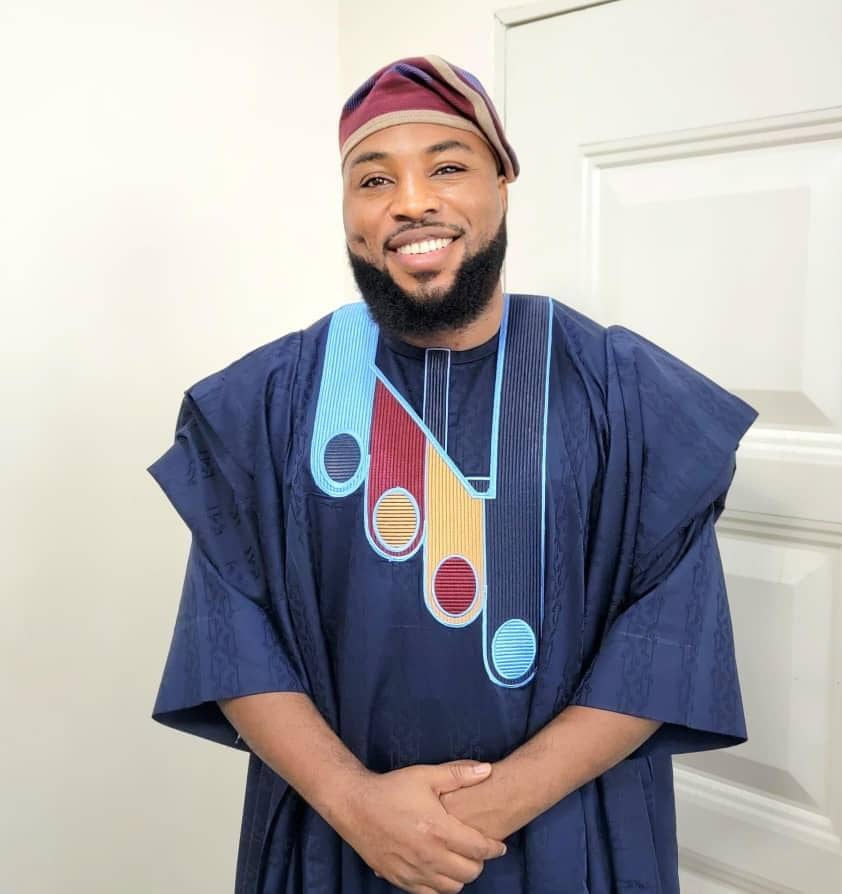Tinubu committed to enhancing Nigeria’s economic stability – Atoyebi
Bamidele Paul Atoyebi, an award-winning philanthropist, has said despite challenges, President Bola Tinubu remains committed to enhancing Nigeria’s economic stability. Atoyebi, who is also a social worker, criminologist, minerals explorer, and serial entrepreneur, stated this in a statement personally signed by him and made available to journalists. The statement, which was titled, ‘My Take on […]

img 20241003 wa0021
Bamidele Paul Atoyebi, an award-winning philanthropist, has said despite challenges, President Bola Tinubu remains committed to enhancing Nigeria’s economic stability.
Atoyebi, who is also a social worker, criminologist, minerals explorer, and serial entrepreneur, stated this in a statement personally signed by him and made available to journalists.
The statement, which was titled, ‘My Take on President Tinubu’s Political Adventure’, read: “In the realm of politics and society, conflict is an inherent part of human interaction. While some individuals exhibit extreme insecurity, many others navigate these tensions with a more moderate approach. Having observed President Tinubu’s political journey since the age of 12, I feel equipped to shed light on the numerous adversaries he faces today.
“Tinubu’s enemies can be categorized into several groups, each with their own grievances.
“First on the list are the disgruntled group of Lagos Natives. This group comprises of those who believe Tinubu does not truly belong to Lagos. They argue that he should allow indigenous leaders to take charge. This sentiment transcends tribal lines but is particularly prevalent among certain groups from the eastern regions of Nigeria.
“Accompanying the disgruntled natives are the wealth and power resentment caucus. This second category consists of individuals who resent Tinubu for his perceived control over Lagos’s political landscape and resources. These critics often come from various tribes but are frequently his fellow Yorubas, who aspire to wield similar influence.
“Also inclusive but inevitable are the political rival groups. This third group views Tinubu as a formidable political force for the Yoruba people. Prior to the formation of the APC, political leadership in the North was fragmented, with only the NNPP holding a few governorships. This has bred jealousy, as Tinubu emerged as a key leader in the southwest.
“The emergence of Buhari as the president of the Federal Republic also contributed to the emergence of a new crop of adversaries; the blame game caucus. This group blames Tinubu for bringing former President Buhari to power, overlooking the democratic process that allowed Buhari to win the election. They fail to recognize that holding Tinubu responsible for Buhari’s governance is misguided; as the Yoruba saying goes, “ika to ba se loba nge,” meaning the finger that err is the one deserve being chopped. I, too, found myself in this mindset for a time, critiquing how President Goodluck Jonathan was treated while not being a fan of Buhari. However, as I gained perspective, I realized that politics is fundamentally a strategic game, where personal feelings often take a backseat.
“Last on the list of early adversaries are however the policy detractors. There are those who believe Tinubu should have intervened with Buhari to prevent crises, leading them to target his assets such as TVC and Radisson Blu. They overlook that behind-the-scenes negotiations are often more effective, and that a politician cannot dismantle their own legacy.
“Currently, Tinubu faces a new wave of adversaries namely the FX cabals, the subsidy cabals, and the anti-local government autonomy group (the state governors). These groups represent significant threats to any political interest and politician, especially when they align against such personality. They feel entitled, believing that public unrest will force the president to retract his policies, and thus ready to continue to salvage their self-interest at the expense of transformation.
“The latest on the list are the anti tax reform adversaries. They believed the new tax bill is after them or their region. Even when most of them have not actually gone through the documents, they want it stopped at all cost.
“With these ever increasing opposition and political foes; “should we now continue in sin and ask grace to abound”, should we say because some high placed people are angry, the president should stop pushing for progressive reforms and policies? Is this how we want to catch up with developed world?
“Despite these challenges, President Tinubu remains committed to enhancing Nigeria’s economic stability and tackling issues like insecurity, unemployment, and poverty. Reverting to old policies would hinder these goals.”
